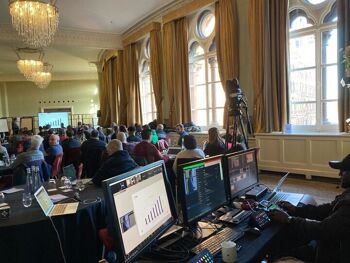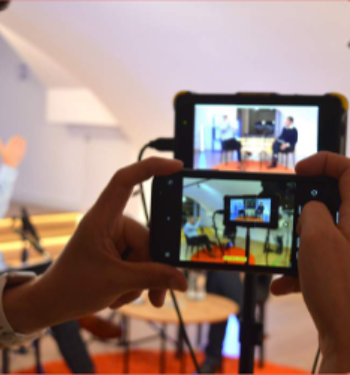Do you know your Generation X from Y or Z?
To be successful in business you need to understand your customers by demographic. With four generations of consumers, businesses need to be familiar with each with of their likes, dislikes and behaviours.
The Baby Boomers:
Born between 1946 and 1964. Age: mid 50’s – early 70s.
Known for having confidence, being comfortable with administering authority and understanding the value of independence.
Boomers have the highest value as consumers and spend the most money on each shopping trip. Surprisingly, this generation even spends the most on technology.
Boomers are convenience-driven. 30% cite convenience as a brand loyalty driver, more than any other generation
Unlike Millennials, Baby Boomers are more sensitive to negative customer experiences. They like to talk to real people and 54% would be unlikely to return to a business if staff were unfriendly and unhelpful.
Generation X:
Born from the early-to-mid 1960s to the early 1980s. Age: early 40’s – 60’s.
The smallest generation. Gen Xers are busy, they have children, mortgages and demanding jobs, but can balance a strong work ethic with a laid back attitude. Known for their love of punk, indie, grunge and techno.
Generation X is quite tech-savvy. They like being on online. More than 80% reports that they are on Facebook, MySpace and Twitter. 27% will voice their feelings on social media after a negative experience and 36% enjoy shopping online to avoid going to a store.
Unlike Millennials and Gen Z, Gen X is more price conscious. 85% say discounts influenced their most recent purchase and 44% consider themselves price-savvy consumers.
Generation Y (Millennials):
Born from the early 1980s to the mid-1990s and early 2000s. Age: early 20s – early 40s
Tech savvy, a ‘post-PC’ generation. However, older millennials are more likely to buy desktop and laptop computers than any other age group. Millennials also see smartphones and PCs as complements, not substitutes.
Millennials are slower than Generation Z in using Snapchat and Instagram. Only 54% are Snapchat users, while 57% of them use Instagram. Youtube videos are the best way for businesses to reach them: it is used by 80% of Millennials.
Known for being ‘soft’, they value social issues ahead of economics. According to the Brookings Institute, 64% of millennials would rather make £40k a year at a job they love than £100k a year at a job they think is boring. Interestingly, Millennials are the largest generation of entrepreneurs.
Millennials don’t trust businesses: only 48% believe corporations behave ethically and that business leaders are committed to helping improve society. 67% believe most businesses just want to make money.
However, Millennials are the most loyal consumers out of all the generations. Millennials are very engaged with rewards programs. They are the most responsive to online shopping opportunities and recommendations from friends and family. However, they still enjoy ‘real’ shopping: millennials like instant gratification. They are almost twice as likely to say they will pop to the shops rather than buy online and wait for a delivery.
Generation Z:
Born between the mid-1990s to the mid-2000s. Age: Teens – early 20s
Generation Z are also regarded as being a very tech-savvy generation. According to Pew Research Centre’s latest report, 95% of teens have access to a smartphone in 2018 (a 22% increase in comparison to 2014), while only 88% of them own a desktop or laptop computer. 45% of the surveyed teens said they are online ‘almost constantly’.
Only 51% reported using Facebook, down from 71% in 2014. YouTube, Instagram and Snapchat are far more popular among 13 to 19 year olds, with 85% using YouTube, 72% using Instagram and 69% using Snapchat.
Quality matters most to Generation Z. And ethical, social and environmental issues are a priority. Over 80% of Millennials and Generation Z consider social and environmental practices to be just as important as a company’s financial results. This includes: positive impact on society and the environment; inclusion and diversity in the workplace; job creation and career development opportunities for employees; and innovative ideas, products and services.
Surprisingly, it’s not always about being online for Gen Zs. A study by commerce marketing company Criteo found that 65% of Gen Z consumers dislike buying things without being able to touch them and 34% of them frequently research about products online, but buy them in store.
Enjoy that? You might like these:





How Live Event Agencies Can Maximise Your Marketing Objectives





